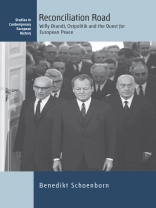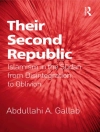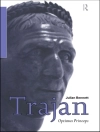Among postwar political leaders, West German Chancellor Willy Brandt played one of the most significant roles in reconciling Germans with other Europeans and in creating the international framework that enabled peaceful reunification in 1990. Based on extensive archival research, this book provides a comprehensive analysis of Brandt’s Ostpolitik from its inception until the end of the Cold War through the lens of reconciliation. Here, Benedikt Schoenborn gives us a Brandt who passionately insisted on a gradual reduction of Cold War hostility and a lasting European peace, while remaining strategically and intellectually adaptable in a way that exemplified the ‘imaginativeness of history’.
Inhaltsverzeichnis
List of Illustrations
Acknowledgements
List of Abbreviations
Introduction
Chapter 1. Roads to Reconciliation
Chapter 2. The First Step: Coexistence (1955–1966)
Chapter 3. Projecting East-West Reconciliation (1966–1969)
Chapter 4. Summit Meetings as Icebreakers (1969–1971)
Chapter 5. Developing New Frameworks (1971–1974)
Chapter 6. Maintaining Contacts with the East (1974–1992)
Conclusion
Bibliography
Index
Über den Autor
Benedikt Schoenborn is an Associate Professor at Tampere University in Finland. His publications include the award-winning book La mésentente apprivoisée: de Gaulle et les Allemands, 1963-1969 (Paris 2007), and, with J.M. Hanhimäki and B. Zanchetta, Transatlantic Relations since 1945: An Introduction (London 2012).












